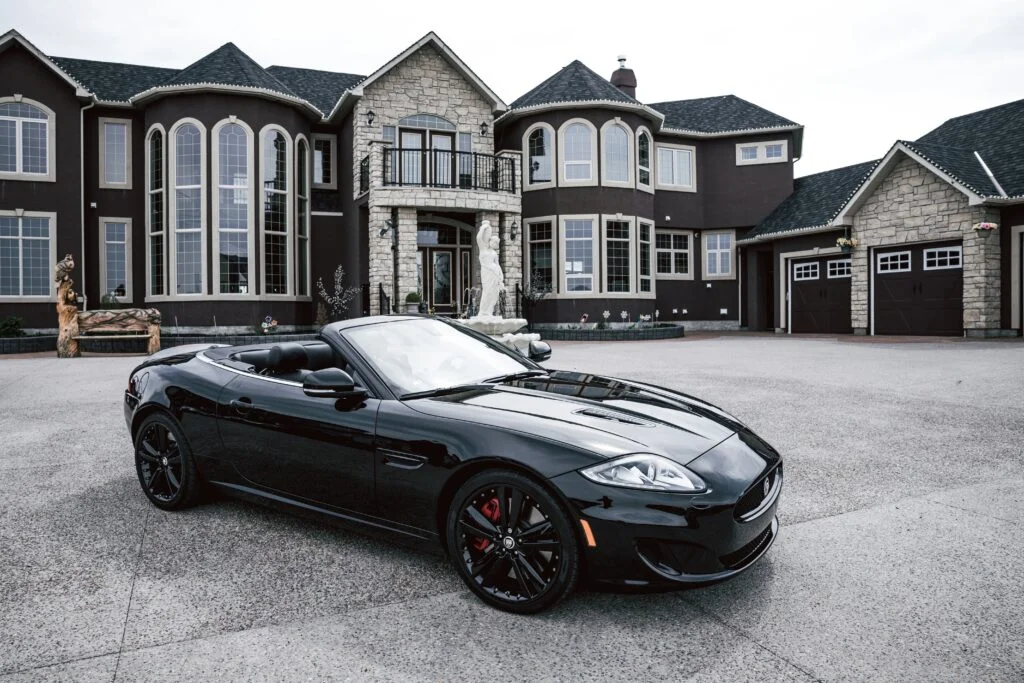The Challenge: Why I Did It
Curiosity has a significant role in motivating individuals to explore new experiences, and for me, the allure of living like a billionaire for a week was irresistible. The lifestyles of the ultra-rich, characterized by opulence and luxury, have always fascinated me. From exotic vacations on private jets to exclusive dining at Michelin-starred restaurants, this lifestyle symbolizes success and freedom that many aspire to attain. Observing their daily routines raised questions about the habits and mentalities that accompany extreme wealth. This curiosity drove me to undertake a challenge that seemed both enticing and daunting.
The desire to experience life from a different socioeconomic perspective motivated this endeavor. Living in a middle-class environment, I often ponder how my daily life would transform if I had access to boundless resources. The challenge was more than just about frivolous spending or indulging in lavish experiences; it was also an opportunity to delve into the psychological aspects of wealth and its impact on personal identity and relationships. By immersing myself in the billionaire lifestyle, I aimed to gain insights not only into luxurious consumption but also into how such a lifestyle shapes one’s worldview, priorities, and values.
Moreover, this challenge allowed me to introspectively assess my own values and aspirations. Are we truly happier with wealth, or is fulfillment found in simplicity and meaningful connections? Through this experience, I aimed to reflect on these questions while contrasting the mundane realities of middle-class life with the extraordinary accessibility afforded by immense wealth. Ultimately, my journey was about bridging the gap between two different worlds; an exploration into luxury that had the potential to shift my understanding of wealth and happiness itself.
Budget, Rules, and Expectations
To embark on a journey that emulates the lavish lifestyle of billionaires, it is essential to establish a clear budget, stringent rules, and manageable expectations. The financial limits set for this week-long experiment were significantly elevated compared to my regular spending habits, mirroring the extravagant choices often associated with ultra-wealthy individuals. The grand total for my billionaire experiment was pegged at $10,000, a fraction of what a billionaire might typically spend at an upscale dinner, on personal services, or on transportation alone.
The rules I adhered to were carefully selected to maintain the integrity of the experience. First and foremost, I would spend freely without focusing on individual prices, allowing for a sense of opulence. Every day brought tasks typical of a billionaire’s routine—fine dining at high-end restaurants, engaging in luxury experiences like private yacht rentals, and booking elite accommodations. The aim was to fully immerse myself in an extravagant lifestyle without the stress of cost calculations weighing on my mind.
My initial expectations were high; I envisioned benefiting from a range of luxury experiences that would clear the mind and elevate my status socially and emotionally. By comparing these indulgences to the budgeting habits of wealthy individuals, the disparities became clear. For instance, billionaires might easily spend tens of thousands for a single dinner, highlighting the sheer extravagance of such lifestyles. My $10,000 budget only allowed for a glimpse of this opulence, yet it still presented a stark contrast to my usual frugal spending habits.
Ultimately, while expecting exhilarating experiences, I also prepared for the potential mental and physical toll that such a shift in lifestyle could impose. Adjusting to this whirlwind of indulgence would be both enlightening and challenging, setting the stage for an intriguing week ahead.
Day 1: The Arrival
Upon embarking on this extravagant journey, I checked into a luxurious suite at a five-star hotel. The sprawling accommodations featured panoramic views of the city skyline, an in-room spa, and personalized concierge services. The cost for this experience amounted to $1,500 per night. For breakfast, I indulged in a gourmet meal crafted by a renowned chef, totaling $100. After a brief consultation with a personal shopper, I spent $2,000 on high-end clothing and accessories, reinforcing the lavish lifestyle associated with the ultra-wealthy. By the end of Day 1, the expenses had already reached $3,600.
Day 2: Exclusive Experiences
Day two involved a private yacht charter for a day of sailing and sightseeing. The rental cost was $3,000, covering the yacht, crew, and gourmet catering. A lavish seafood lunch onboard came to $250, featuring delicacies rarely enjoyed by the average individual. The afternoon was spent exploring scenic destinations, followed by an evening at an upscale dining establishment where my meal amounted to $300. The day’s total was a staggering $3,550, illustrating how entertaining in style can significantly impact expenditures.
Day 3: High Stakes and Rich Rewards
This day revolved around an exclusive trip to a high-stakes poker game hosted by a prominent billionaire. While entry cost me $25,000, the atmosphere was electrifying, attracting some of the wealthiest individuals in the region. A lavish dinner was served, accounting for an additional $400. Despite a night filled with anticipation, I walked away with no financial gains, leading to a total expenditure of $25,400 on the third day—a testament to the gamble that often accompanies billionaire lifestyles.
Day 4: Philanthropy and Wealth Management
On the fourth day, I immersed myself in a philanthropic endeavor by attending a charity gala. Tickets were priced at $5,000, and the evening featured a renowned auction where I bid on several art pieces. The total cost for art acquisitions reached $15,000. While participating in charitable works is standard for billionaires, the financial impact is less frequently acknowledged. Combined, the expenses for Day 4 came to $20,000, showcasing the balance of altruism and affluence that often shapes the lives of the ultra-wealthy.
Day 5: Retail Therapy
Day five was dedicated to the ultimate shopping experience. I visited high-end boutiques, purchasing several designer handbags and accessories, which collectively cost $10,000. Lunch at a fashionable café accounted for another $150, further emphasizing the high costs of dining in luxury. Later, I indulged in a spa treatment costing $500, rounding off the experience. By the end of the day, the tally stood at $10,650, illustrating how retail therapy is an ingrained part of a billionaire’s lifestyle.
Day 6: Adventure and Extravagance
On the sixth day, I sought adventure with a private helicopter tour over the city. The experience cost $2,500 and provided breathtaking views. Upon landing, I celebrated with a lavish dinner, which totaled $600, including exotic dishes and premium wine. The indulgence of adventure added excitement but came at a significant financial cost. The overall spending for Day 6 thus reached $3,100. This experience revealed how adventure is also a form of luxury that billionaires often embrace.
Day 7: The Reflection
My final day involved a quiet retreat at a high-end resort. The night’s stay cost $800, while the day included relaxation treatments worth $400. Concluding with a farewell dinner at a Michelin-star restaurant for $300, I relished the culmination of my week in luxury. This final day brought my total expenses to $1,500. Reflecting on the week illuminated not only the decadence associated with wealth but also the speed with which expenses can accumulate, resulting in an eye-opening financial experience.
Outrageous Expenses
Living like a billionaire for a week introduced me to a world of extravagant expenses that I had only previously encountered through media portrayals. The allure of luxury products and services was palpable, making it all too easy to justify significant purchases that I would typically consider excessive. The first major expense occurred when I decided to rent a luxury sports car for a day. The experience of driving a top-of-the-line model was exhilarating, and the high performance of the vehicle made every dollar spent feel justified, at least momentarily. However, the cost per day was staggering, prompting me to question whether the thrill was worth the price tag.
Another notable expense involved dining at a renowned Michelin-starred restaurant. The lavish multi-course meal not only tantalized my taste buds but also left my wallet considerably lighter. The atmosphere was undeniably upscale, and each dish was a masterpiece; yet, I found myself pondering the balance between culinary artistry and practicality. It was a beautiful evening, filled with gastronomic delights, yet the financial impact was significant, leaving me to consider if such a dining experience could ever be justified in my regular life.
During the week, I also indulged in spontaneous purchases that seemed to epitomize the billionaire lifestyle. On a whim, I rented a private yacht for an afternoon. The luxurious experience of sailing on open water, complete with a personal crew, was nothing short of extraordinary. However, the cost was a harsh reality check, raising questions about the sustainability of such indulgences. These lavish expenditures served as both a thrilling escapade and a stark reminder of the disparities in everyday living. Ultimately, while these experiences provided glimpses into a luxurious lifestyle, they also initiated a deeper examination of value, cost, and what truly brings satisfaction in life.
Luxury vs Reality
The allure of a billionaire lifestyle often paints a picture of endless luxury and unbridled happiness. Societal narratives suggest that this existence is characterized by opulence—private jets, designer wardrobes, and extravagant mansions. However, my experience living like a billionaire for a week revealed a contrasting narrative that is both enlightening and sobering.
Initially, the excitement of indulging in lavish experiences was palpable. From dining at exclusive restaurants to enjoying personalized services, everything felt surreal. Yet, as the novelty wore off, the facade of luxury began to fade, revealing complexities often overlooked by those outside this realm. The pressures of managing vast resources, maintaining an image, and facing constant scrutiny took a toll on my mental well-being. The initial thrill of wealth gave way to feelings of isolation and anxiety, reminding me that happiness is not intrinsically linked to material possessions.
Furthermore, the social dynamics within affluent circles can be disheartening. Interactions often revolve around status and wealth rather than genuine connections. I found myself longing for simple and authentic moments that, ironically, are frequently overlooked in the pursuit of luxurious experiences. Meaningful relationships, rather than lavish extravagance, emerged as a vital ingredient for true fulfillment, highlighting that wealth can sometimes create barriers rather than bridges.
This juxtaposition—where luxury intersects with reality—underscores an important truth: material abundance does not guarantee emotional or psychological success. While the escapism offered by wealth can be appealing, it often masks profound challenges. Ultimately, living like a billionaire illuminated the stark contrast between the glamorous perception of wealth and the complex reality that often lies beneath. It propelled me to reflect upon what truly constitutes a rich and satisfying life, urging me to prioritize connections over commodities.
Where It Got Uncomfortable
During my week-long experience of living like a billionaire, moments of discomfort frequently overshadowed the excitement of wealth. The pressure to maintain appearances became a significant burden. Attending exclusive events and mingling with affluent peers necessitated an outward projection of confidence and composure, regardless of my internal struggles. I felt an unrelenting obligation to effortlessly adopt the lifestyle of the rich, which included expensive outfits and flawless manners. However, the truth was that I was often anxious about appearances. The constant need to present myself in a manner consistent with billionaire norms became overwhelming.
Furthermore, the necessity to indulge in extravagant experiences often felt excessive. While enjoying a lavish dinner at a Michelin-starred restaurant, I grappled with the enormity of the experience. Each course was not simply a culinary delight but also an economic statement designed to impress others. The sensation of being surrounded by opulence began to feel alien. The need to share my experiences on social media to keep up with wealthy influencers only added to my discomfort. I started feeling as though my worth was measured by the lavishness of my activities rather than their intrinsic value.
The reactions from friends, family, and even strangers throughout the week illustrated societal views of wealth. Some admired the lifestyle I portrayed, expressing envy and curiosity about my newfound status. In contrast, others responded with skepticism, raising their eyebrows at the ostentatiousness that seemed to dominate my week. This disparity of reactions left me questioning the nature of wealth itself. Was the admiration genuine, or merely a reflection of societal allure? Ultimately, navigating various reactions became challenging, highlighting the complexities underlying social status and wealth perception.
People’s Reactions
During my week of living like a billionaire, I was not only aware of my own experiences but also became acutely conscious of the reactions from those around me. Perceptions regarding wealth and spending habits can differ widely, revealing a great deal about societal values and individual viewpoints. Some friends and acquaintances expressed admiration for my willingness to step into the shoes of the ultra-wealthy. They seemed intrigued by the luxurious lifestyle, often sharing their own fantasies of such wealth. This admiration, however, was often coupled with a subtle undercurrent of disbelief. The concept of spending large sums of money with little regard for budgeting created an atmosphere of curiosity mixed with skepticism.
Family members had varied responses as well. Some exhibited a sense of pride, viewing the challenge as an exploration of ambition and aspiration. They were captivated by tales of fine dining and lavish amenities, reflecting on the notion that wealth could lead to an enhanced quality of life. Yet, others were less supportive, expressing concern about the ethical implications of excessive spending and the disconnect from everyday realities faced by most individuals. These reactions highlighted a critical point: wealth can provoke awe, but also critique. The disparity in perspectives I encountered prompted me to contemplate how deeply societal values are intertwined with financial status.
On social media, the reactions were even more pronounced. While some followers applauded my efforts and encouraged me to continue exploring wealth-driven lifestyles, others were quick to voice judgment, pointing out the dangers of materialism and superficial living. This dichotomy was illuminating, as it illustrated the complex relationship society holds with wealth. Overall, the varied responses left me with a deeper understanding of not only how wealth affects personal relationships but also how it influences societal perceptions, revealing contradictions in admiration, envy, and ethical considerations.
Pressure to ‘Keep Up’
Throughout the week of emulating a billionaire lifestyle, the pressure to maintain appearances became increasingly overwhelming. Initially, the luxurious experiences seemed thrilling and exhilarating. However, as the days progressed, the burden of expectation weighed heavily on my shoulders. To align myself with the opulent lifestyle of the ultra-wealthy, I felt an unrelenting compulsion to partake in extravagant activities and showcase my participation in exclusive social circles. This drive soon morphed into an internal competition—a race against my perception of how billionaires operated.
The psychological toll of this pressure started to manifest as feelings of inadequacy. Each time I indulged in lavish dinners or attended elite events, I found myself scrutinizing others, measuring my worth against the glittering personas surrounding me. Rather than finding joy in these experiences, I became consumed by thoughts of whether I measured up—was I dressed well enough, or was my car impressive enough? Being surrounded by affluence only amplified these insecurities, leading to a relentless cycle of comparison that distracted me from the intrinsic value of each moment.
This competition for status not only hindered my ability to savor experiences but also took a significant toll on my mental health. The convoluted relationship I had with wealth raised questions about self-worth and validation tied to material possessions and social standing. In pursuing acceptance among the elite, I found myself caught between the desire for enjoyment and the pressure to maintain a façade. Thus, the glimmering allure of wealth began to feel more like a burden than a blessing. Ultimately, this experience illuminated the complexities behind wealth and social dynamics, leading to a critical reflection on the implications of keeping up appearances in such an expensive and demanding environment.
Lessons Learned: Money Doesn’t Buy Everything
Experiencing a week of life akin to that of a billionaire led to a profound realization: true happiness and fulfillment extend far beyond material wealth. While the extravagant lifestyle afforded an array of luxuries, it became glaringly evident that these superficial pleasures often masked deeper concerns. The pursuit of riches can create an illusion of satisfaction, but as I navigated through glamorous events and luxurious accommodations, I found myself longing for genuine connections and meaningful experiences.
The week highlighted how personal well-being significantly hinges on non-material aspects, such as relationships, passion, and a sense of purpose. Interacting with individuals who defined their worth through affluence unveiled a curious disparity between their external success and internal fulfillment. Many billionaires, despite their immense wealth, grapple with feelings of isolation and discontent. This experience underscored the notion that money can facilitate comfort and convenience but fails to offer the emotional richness that comes from authentic human connections.
Moreover, the pressures that accompany extreme wealth can lead to stress and anxiety. The constant scrutiny of public perception and the desire to maintain a façade of success can erode mental health. In essence, while financial security is undoubtedly valuable, the lessons learned during this week suggest that nurturing personal relationships, pursuing passions, and engaging in self-reflection are paramount for a truly gratifying life. Wealth may provide opportunities, yet it does not ensure happiness. As we navigate our daily lives, it is crucial to prioritize those elements that foster lasting joy and fulfillment—elements that no amount of money can buy.
Real Takeaways for Your Lifestyle
Experiencing a week of living like a billionaire brings forth valuable insights, particularly in recognizing how small enhancements to daily life can lead to an elevated sense of well-being. The primary takeaway from this exercise is that luxury does not always stem from opulence but can often be found in intentionality and mindfulness surrounding everyday experiences.
First, consider simplifying and enhancing daily routines. Small pleasures such as enjoying high-quality food, whether it’s freshly brewed coffee or carefully sourced produce, can significantly improve your everyday meals. Establishing a dedicated time to savor these moments creates a sense of indulgence that lends itself to a luxurious lifestyle without the associated costs. Prioritizing quality over quantity is essential; it transforms mundane tasks into enjoyable rituals.
Furthermore, create a space in your home that promotes tranquility and inspiration. This can be achieved by decluttering and investing in a few key decorative elements that resonate with personal style. Incorporate plants, art pieces, or comfortable furniture that facilitate relaxation and creativity. This practice not only enhances your living environment but also encourages a mindset that embraces beauty in simplicity.
Engaging in experiences that enrich without overextending the budget is another critical aspect. Seek out local events, workshops, or classes that allow you to explore new interests or develop skills. This fosters a sense of community and connection while enabling personal growth. Additionally, consider embracing self-care routines, dedicating moments to mental and physical well-being through activities such as yoga or meditation.
In essence, blending aspects of luxury into your life does not necessitate vast wealth; it requires a mindful approach to how you live. By prioritizing quality experiences and fostering a nurturing environment, one can cultivate a lifestyle that feels rich in value, irrespective of one’s financial standing.

It could cover a range of topics related to health, wellness, beauty, personal growth, and social issues, all from the perspective of striving for beauty, intelligence, youthfulness, and impartiality





